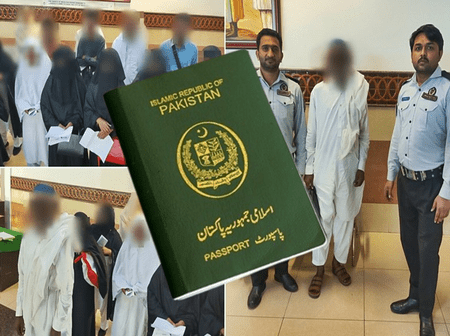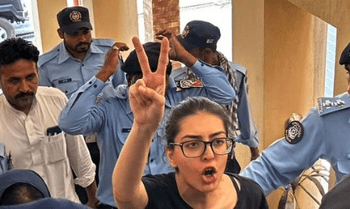Islamabad, Nov 27 — The United Arab Emirates (UAE) has stopped issuing visas to Pakistani citizens, a senior Interior Ministry official revealed on Thursday, marking a significant setback for millions of Pakistanis who rely on Gulf nations for travel and employment opportunities.
Additional Interior Secretary Salman Chaudhry made the disclosure during a meeting of the Senate Functional Committee on Human Rights. According to Pakistan’s leading daily Dawn, Chaudhry warned that if such a ban had been formally imposed, “getting it removed would be difficult,” suggesting that Islamabad may face an uphill task in persuading the UAE to reverse the restrictions.
Chaudhry informed the committee that at present, the UAE was issuing visas only to holders of blue (official) passports and diplomatic passports, effectively blocking all categories of visas for ordinary Pakistani citizens. The revelation stirred concern among lawmakers, given the UAE’s longstanding status as a key destination for Pakistani tourists, workers, and business travellers.
Committee Chairperson Senator Samina Mumtaz Zehri confirmed the Interior Ministry’s briefing, stating that the primary reason cited for the restrictions was the growing involvement of Pakistani travellers in criminal activities after arriving in the UAE. She noted that the committee was told the UAE had issued virtually no visas to Pakistanis in recent weeks, with only a small number approved under strict scrutiny and “after much difficulty.”
The development comes against the backdrop of increasing visa rejections faced by Pakistani citizens across several Gulf states. Pakistan’s government has reportedly raised the matter with Gulf authorities during official meetings, seeking relaxation of restrictions and requesting clearer guidelines.
This is not the first instance of Gulf nations tightening visa policies for Pakistan. In December 2024, the UAE, Saudi Arabia, and multiple other Gulf countries imposed an indefinite ban on issuing visas to residents from at least 30 Pakistani cities. That decision followed a surge in cases involving Pakistanis allegedly being caught in activities such as begging, smuggling, drug trafficking, human trafficking, and other criminal offences upon arrival.
The continued restrictions are particularly alarming for Pakistan, as Gulf countries—especially Dubai and Abu Dhabi—serve as the most preferred destinations for millions seeking employment or short-term travel. Remittances from Pakistani expatriates in the UAE form a major part of Pakistan’s foreign income, making the latest move potentially damaging for both the economy and job-seeking youth.
Earlier, the UAE had also made it compulsory for Pakistani visa applicants to submit police character certificates to curb the influx of individuals involved in criminal activities. Despite these measures, authorities in Gulf nations have reportedly remained concerned about rising offences linked to visitors from Pakistan.
Adding to the public discourse, popular Pakistani YouTuber and podcaster Nadir Ali previously acknowledged growing difficulties for travellers from Pakistan. Speaking in an interview last year with the owner of a major travel company in Karachi, he revealed, “Saudi Arabia and Dubai were popular destinations, but have now stopped giving visas. I too faced great difficulty when I wanted to go for the IIFA Awards.” Ali also noted that Saudi authorities had issued strong warnings to Pakistan over the increasing number of cases involving beggars being detained.
With no official statement yet from the UAE government on the latest restrictions, the situation remains fluid. Pakistani authorities are expected to seek formal clarification and explore diplomatic avenues to address the growing challenges faced by their citizens in securing travel and work visas to Gulf nations.

















